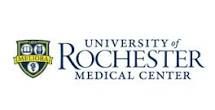预约演示
更新于:2025-05-07
MAP3K11 x TNF-α
更新于:2025-05-07
关联
1
项与 MAP3K11 x TNF-α 相关的药物作用机制 MAP3K11抑制剂 [+1] |
在研机构- |
在研适应症- |
非在研适应症 |
最高研发阶段无进展 |
首次获批国家/地区- |
首次获批日期1800-01-20 |
100 项与 MAP3K11 x TNF-α 相关的临床结果
登录后查看更多信息
100 项与 MAP3K11 x TNF-α 相关的转化医学
登录后查看更多信息
0 项与 MAP3K11 x TNF-α 相关的专利(医药)
登录后查看更多信息
16
项与 MAP3K11 x TNF-α 相关的文献(医药)2020-08-01·Journal for ImmunoTherapy of Cancer2区 · 医学
Rationalized inhibition of mixed lineage kinase 3 and CD70 enhances life span and antitumor efficacy of CD8+T cells
2区 · 医学
ArticleOA
作者: Rana, Basabi ; Kumar, Sandeep ; Singh, Sunil Kumar ; Thatcher, Gregory ; Sinha, Subhash C ; Sethupathi, Periannan ; Dorman, Matthew ; Rana, Ajay ; Sondarva, Gautam ; Hoskins, Kent ; Viswakarma, Navin ; Nair, Rakesh Sathish
2018-10-01·Molecular Biology of the Cell3区 · 生物学
WDR62 mediates TNFα-dependent JNK activation via TRAF2-MLK3 axis
3区 · 生物学
Article
作者: Prinz, Elad ; Aronheim, Ami ; Aviram, Sharon
2013-10-24·Journal of Medicinal Chemistry1区 · 医学
Discovery, Synthesis, and Characterization of an Orally Bioavailable, Brain Penetrant Inhibitor of Mixed Lineage Kinase 3
1区 · 医学
Article
作者: Gelbard, Harris A. ; Polesskaya, Oksana ; Ravula, Satheesh B. ; Xu, Yang ; Marker, Daniel F. ; Pollack, Scott ; Sheppard, David ; Todd, Daniel E. ; Wiemann, Torsten ; Loweth, Colin J. ; Nguyen, Thong ; Dewhurst, Stephen ; Goodfellow, Val S.
分析
对领域进行一次全面的分析。
登录
或

生物医药百科问答
全新生物医药AI Agent 覆盖科研全链路,让突破性发现快人一步
立即开始免费试用!
智慧芽新药情报库是智慧芽专为生命科学人士构建的基于AI的创新药情报平台,助您全方位提升您的研发与决策效率。
立即开始数据试用!
智慧芽新药库数据也通过智慧芽数据服务平台,以API或者数据包形式对外开放,助您更加充分利用智慧芽新药情报信息。
生物序列数据库
生物药研发创新
免费使用
化学结构数据库
小分子化药研发创新
免费使用
